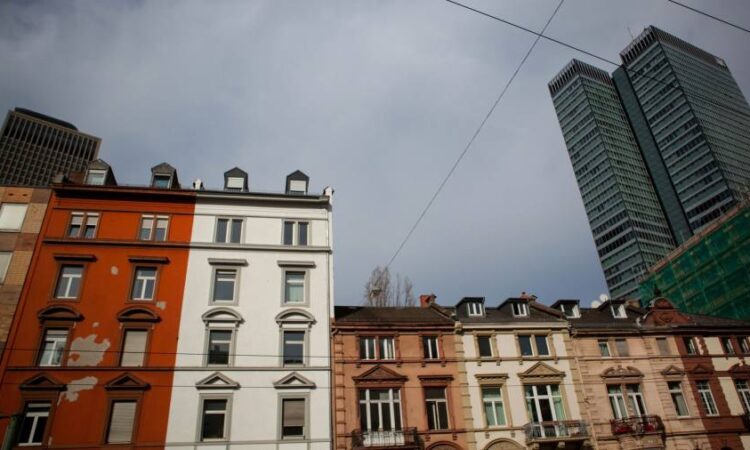
German house prices suffered their biggest six-month fall in more than 20 years in the second half of 2022, underlining how an unprecedented rise in interest rates has brought an abrupt end to the decade-long boom in Europe’s largest property market.
The Association of German Pfandbrief Banks (VDP), which collects data from 700 credit institutions, said residential property prices had fallen 1.8 per cent in the fourth quarter, compared with the previous quarter. The cumulative 2.5 per cent fall recorded over the final six months of 2022 was the biggest since VDP started collecting the data in 2003.
Higher borrowing costs are deterring many Europeans from buying a house, leading to a sharp drop in demand for mortgages, which is driving down prices and pushing up rental costs. Commercial property prices are falling even faster in Germany and much of Europe, while construction of new houses, offices and shops is also in sharp decline.
House prices have been surging upwards for the past 10 years in much of Europe. In Germany, they rose more than 60 per cent in only the past seven years. But the region’s property market has gone into reverse since the European Central Bank started raising interest rates last summer to tackle record inflation driven by Russia’s invasion of Ukraine.
“The long dynamic of price growth in the German property market has come to an end,” said VDP head Jens Tolckmitt. “We expect continued moderate declines in the overall market for the next several quarters.”
The fourth-quarter fall in Germany followed a 0.8 per cent drop between the second and third quarters, which was the first decline in German house prices recorded by the banks since 2010.
VDP’s data showed a continuing decline in non-residential property in the latest six-month figures, with commercial real estate prices falling 5 per cent and those for retailing properties by 8 per cent.

There have been even bigger falls in the average house prices of other European countries in recent months, although the overall EU housing market still grew 0.9 per cent between the second and third quarters — the latest data available from the EU statistics agency Eurostat.
Swedish house prices fell 13 per cent between their peak a year ago and December, according to Nordea. UK house prices dropped 5.7 per cent last month from their peak in August, according to mortgage provider Nationwide, while Dutch house prices fell 4.5 per cent in December from their July peak.
However, bankers are confident that even if German house prices fall as much as 15 per cent, it will not cause much stress for the financial system or for households, because the average maturity on a German mortgage is about 14 years. “Nothing really changes for existing mortgages,” said Tolckmitt. “Even for mortgages maturing this year, they will be paying a similar rate to when they took out the mortgage over 10 years ago.”
“Do we see a sharp decline ahead for the German housing market or only a gradual drop?” said Jochen Möbert, an economist at Deutsche Bank. “I am more in favour of the latter because the shortage of housing will only get worse as the population grows.”
He predicted that fewer than 250,000 apartments would be built in Germany this year, down almost a fifth from 2020 and far below the government’s target of 400,000.
The ECB last week raised its deposit rate by half a percentage point to 2.5 per cent and said it intended to raise it again by a similar amount next month, which would take euro area borrowing costs to their highest level since the 2008 financial crisis.
Banks have responded by sharply increasing the rates on the average new German mortgage from below 1 per cent to almost 4 per cent. Lucie Lotzkat, managing partner at German estate agents Von Poll Immobilien, said: “High-equity real estate financing was still around 0.8 per cent a year ago, today it is between 3.5 per cent and 3.8 per cent.”
Demand for mortgages in the eurozone fell at the fastest pace on record at the start of this year, as banks in Germany, France, Italy and Spain all tightened their lending terms, according to an ECB survey of lenders published last week.





